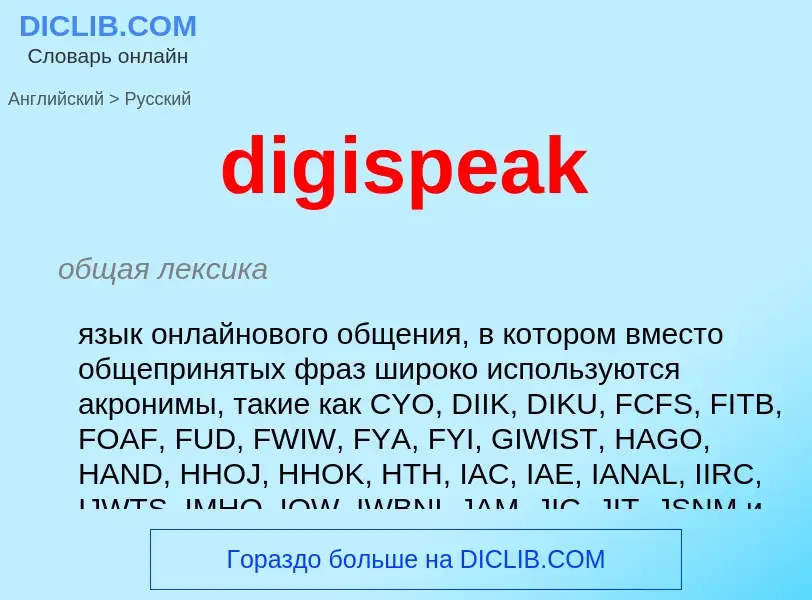Traduzione e analisi delle parole tramite l'intelligenza artificiale ChatGPT
In questa pagina puoi ottenere un'analisi dettagliata di una parola o frase, prodotta utilizzando la migliore tecnologia di intelligenza artificiale fino ad oggi:
- come viene usata la parola
- frequenza di utilizzo
- è usato più spesso nel discorso orale o scritto
- opzioni di traduzione delle parole
- esempi di utilizzo (varie frasi con traduzione)
- etimologia
digispeak - traduzione in russo
общая лексика
язык онлайнового общения, в котором вместо общепринятых фраз широко используются акронимы, такие как CYO, DIIK, DIKU, FCFS, FITB, FOAF, FUD, FWIW, FYA, FYI, GIWIST, HAGO, HAND, HHOJ, HHOK, HTH, IAC, IAE, IANAL, IIRC, IJWTS, IMHO, IOW, IWBNI, JAM, JIC, JIT, JSNM и сотни других
дословная передача
цифровой язык, диджиспик
Definizione
LOL is internetese for laugh out loud
Wikipedia

Internet slang (also called Internet shorthand, cyber-slang, netspeak, digispeak or chatspeak) is a non-standard or unofficial form of language used by people on the Internet to communicate to one another. An example of Internet slang is "LOL" meaning "laugh out loud". Since Internet slang is constantly changing, it is difficult to provide a standardized definition. However, it can be understood to be any type of slang that Internet users have popularized, and in many cases, have coined. Such terms often originate with the purpose of saving keystrokes or to compensate for small character limits. Many people use the same abbreviations in texting, instant messaging, and social networking websites. Acronyms, keyboard symbols, and abbreviations are common types of Internet slang. New dialects of slang, such as leet or Lolspeak, develop as ingroup Internet memes rather than time savers. Many people also use Internet slang in face-to-face, real life communication.


